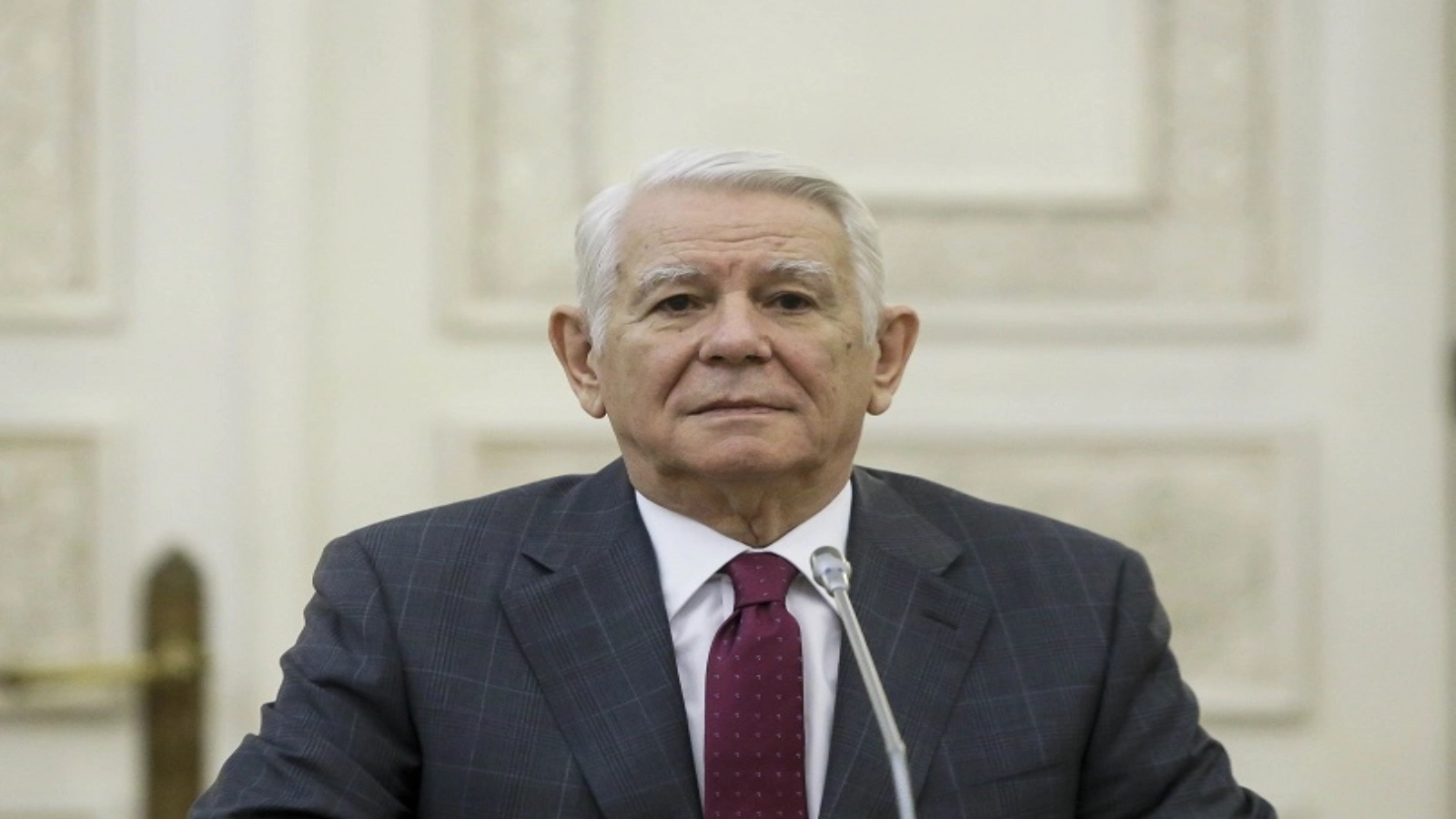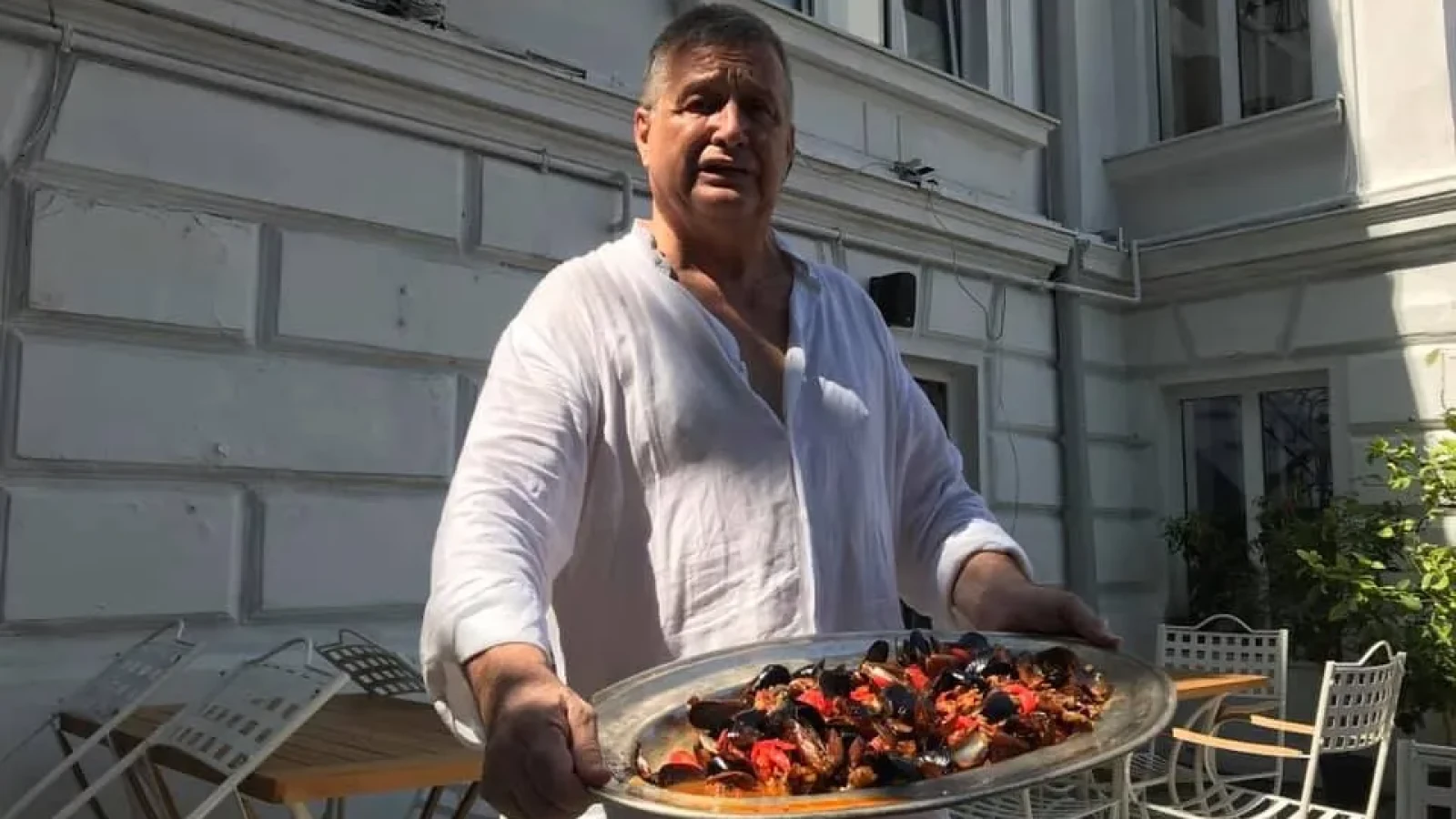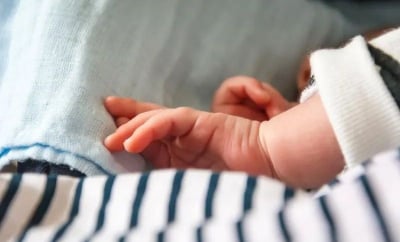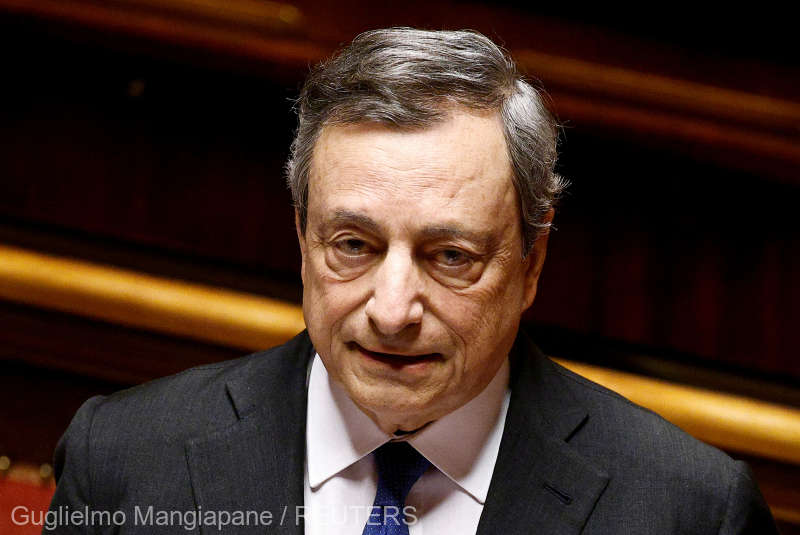The pavilion of Romania at EXPO 2017 Astana, with the laser from Magurele, is among the top five pavilions in terms of the most interesting showcased at this international exhibition, Romania's Foreign Affairs Minister Teodor Melescanu told Agerpres on Thursday.
Visiting Kazakhstan on July 27-28, Melescanu said the event had a double purpose: on the one hand, the 25th anniversary of the establishment of diplomatic ties between Romania and Kazakhstan, as Romania was one of the first countries to recognise Kazakhstan's independence and, on the other hand, to attend the official ceremony on Romania's Day at the international exhibition EXPO 2017 Astana. Future Energy. "The visit to Kazakhstan had a double purpose: on the one hand, the 25th anniversary of the establishment of diplomatic ties between Romania and Kazakhstan - and I would like to point out that Romania was one of the first countries to recognise Kazakhstan's independence - and the second priority was to participate in Romania's Day at the country's EXPO Astana Pavilion, where we are showcasing several exhibits, but the pavilion was built specifically to bring to the fore the laser at Magurele and the idea of an energy for the future," said Melescanu.
The head of the Romanian diplomacy said that the central element of the Romanian Pavilion - the ELI-NP (Energy Light Infrastructure - Nuclear Physics) project, implemented by the Horia Hulubei National Institute of Nuclear Physics, has generated public interest. In addition, the Magurele laser is among the top five most interesting exhibits selected by the exhibitors. "Romania's Day has enjoyed great and good presence, including from local officials - Kazakh Minister of Information and Communication [Dauren Abayev], the deputy energy minister, members of the diplomatic corps, members of the Romanian community of Karaganda, as well as a public interested in seeing novelties. I would like to say that from the discussions I had with the organisers, I understand that they wanted to select the most interesting exhibits that were displayed at this exhibition and among the top five is the Magurele laser. Moreover, on the occasion of the opening of the pavilion to celebrate Romania's Day in Astana, we had the great pleasure and honour to be represent here by an artist who no longer needs any recommendation: maestro Gheorghe Zamfir, who gave a concert ahead of the official celebration ceremony of Romania's Day at its pavilion is Astana," Melescanu said.
He stressed that his visit to Kazakhstan was the first bilateral visit of a Romanian foreign minister after a period of about 9 years. "Obviously, the visit also had a bilateral context. It was an occasion I wanted to use: for over nine years, no representative of the Romanian Foreign Affairs Ministry had visited Kazakhstan. Now, I've had consultations with Kairat Abdrakhmanov - Kazakhstan's foreign minister to review the bilateral relations between Romania and Kazakhstan, and also to exchange of opinions on more serious international issues like Syria - where Kazakhstan plays an important role in the Astana process; problems in the Black Sea region, in general, as well as everything that affects international security, including the conflicts in Iraq, Afghanistan, etc.," said Melescanu.
Melescanu said that from his conversations with his with Kazakh counterpart, Romania and Kazakhstan should diversify and expand economic relations so that they include cultural, educational and technical-scientific fields as well. "In all my conversations here, we have basically reached two important conclusions with the Kazakh side: the first is that energy is the only economic cooperation area for now where there is very close cooperation, which is natural, giving that Kazakhstan is a country with high energy resources. So the first conclusion was to diversify economic relations to include other areas of interest for Kazakhstan and Romania and we have identified some of them: information technology, agriculture, tourism, research and innovation, and cultural cooperation, which could lead to a widening of our relationship not only in the economic sector but also in other areas," he explained.
It was established that, on October 4-5, the Joint Romanian-Kazakh Committee on Economic and Technical Cooperation will meet in Bucharest, to discuss concrete projects presented by both sides. "In order to address as closely as possible some areas - or some better projects - in the field of energy, as well as in the other mentioned areas, we agreed that the Joint Romanian-Kazakh Committee on Economic and Technical Cooperation will meet in Bucharest on October 4-5 that will be tasked with addressing concrete projects that will be presented both by the Romanian side and the Kazakh side. So, from this point of view, we have found great availability from Kazakhstan and an interest in developing relations with Romania. From our point of view, I want to say very openly: Kazakhstan is Romania's most important economic partner in Central Asia, and there is obviously an interest on our side. There is also Kazakhstan's interest in the support that Romania can offer in relations with the European Union. Romania's presidency of the Council of the European Union [in H1 2019] is, from our point of view, a very important theme and a very important opportunity to develop relations with other non-EU countries, including Kazakhstan," said Melescanu.
In addition, Melescanu mentioned his visit to Karaganda, where he met leaders of the local Romanian community and the Governor of the Karaganda Region, Yerlan Koshanov. He laid a wreath at the Monument of Romanians victims of Stalinist labour camps (the Spassk Monument), and visited the Karaganda State Technical University. "Moreover, I would like to tell you that I have also paid a visit to the Karaganda region, which is about 200 kilometres from Astana, a region which, in terms of size, is twice as much as Romania, and, in terms of natural resources, it is one of the world's ore richest areas, from coal to iron ore and all sorts of raw materials that are being exploited here in the area. I personally wanted this visit to happen because there is a Romanian community in Karaganda and, besides, it is an organised community, it has a cultural society - Dacia, it has a folklore ensemble Dorule. So there is a community and I wanted to give them a very important signal that we do not forget them, no matter what happens in history, and that our relationship with these communities will continue to be very important," the foreign minister assured.
He added that thanks to diplomatic efforts, the first and only on Romanian Language, Culture and Civilisation lecturer's office opened at the State University of Karaganda, unique in Central Asia. "We wanted to signal the importance we attach to interpersonal relations between Romania and Kazakhstan. So, in all respects, I think this was a very good visit: I signed on this occasion a declaration on 25 years of diplomatic ties; an agreement was signed between the Romanian Chamber of Commerce and Industry and Kazakhstan's International Chamber of Commerce, which paves the way for a future collaboration framework, including between privately-owned companies, from businessman to businessman, in addition to what we do at the level of the governmental committee and the Joint Committee on Economic and Technical Cooperation. From our point of view, there are many themes that we share with the Kazakh side, and one of the most important of them is Kazakhs and Romania insisting on the need for strict observance internationally of the principles and rules of international law and renouncing the use of force at the international level and the interference with the domestic affairs of other countries. That is a concern Kazakhstan and Romania are sharing," said Melescanu.
As for the Romanian community in Karaganda, Melescanu said there were three wishes that were expressed to him at the meeting. "There are basically three wishes that we have recorded. The first one is about the very long deadlines for obtaining the Romanian citizenship - and I made a promise that, when we return to Bucharest, we will take a look at the existing applications to see whether they are all right and we will approach them according to the legal provisions in force. Secondly, they would very much like to have a minibus in which to be able travel less expensively to Romania, because they want to maintain their relations with their motherland; I will talk to the Romanian Government to see what we can do. Thirdly, there is a great interest in obtaining scholarships in Romania on the art of children of the Romanian families and even mixed families. They want to make the most of the educational opportunities in Romania. These are the three subjects discussed at the meeting," said Melescanu.
He also mentioned a collaboration agreement between the Bucharest Polytechnic University and the State University of Karaganda, which is to be focused on scientific research and innovation matters. "A collaboration agreement was signed between the Polytechnic University of Bucharest and the State University of Karaganda, which will be focused on scientific research and innovation matters. The agreement was signed on a visit here and I thought it would be a very good solution, a very useful one, we could organise a visit to Romania by Kazakhstan's education minister and possibly to sign other documents or even to set common themes of research for the two universities. There is a proposal for exchanges of teachers and students. Both at the level of the Ministry of Foreign Affairs and at the level of the universities, we have mobility programmes that allow us to fund the presence of professors and students from one university to another. The extent to which the funding can be extended to include Kazakhstan is one of the themes we are considering when we return to Romania."
The Astana 2017 EXPO International Exhibition runs until September 10, 2017. Organisers estimate that the event will attract more than five million visitors from all over the world.
The event, similar to the one held in the Spanish city of Zaragoza in 2008, precedes a six-month universal exhibition to be hosted by Dubai in 2020 similarly to those organised in Seville in 1992 and Milan in 2015. The EXPO 2017 "Wind Energy" logo consists of three wind turbines in blue, orange and green. The logo was chosen by residents of Kazakhstan in July 2013. The mascots are three dolphins in the same colours as the logo: orange, green and blue, symbolising the sun, wind and water. The dolls, representing three children, will be the symbol of both the exhibition and the host country, Kazakhstan.
































Comentează